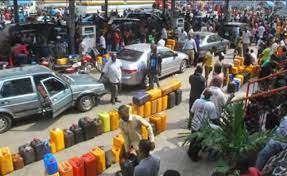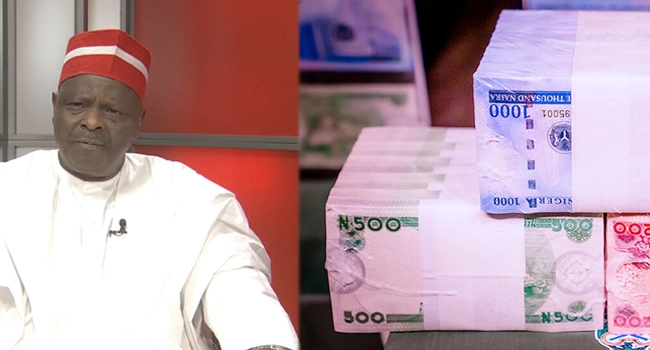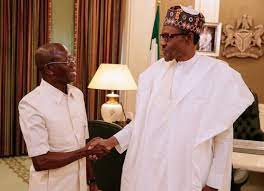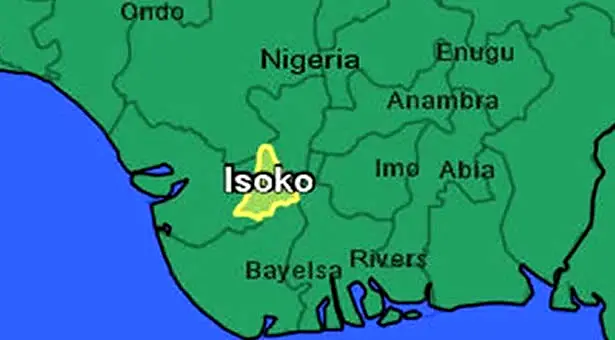President Buhari Launches eNaira pushes through difficult environment
Written by on April 4, 2022
Africa’s first digital currency, eNaira, issued by the Central Bank of Nigeria (CBN), as part of its central bank digital currency (CBCD) programme, is projected to be running on about 10,000 downloads per day, dpd, in the second quarter of this year, Q2’22. This projection by a source in one of the commercial banks leading in the eNaira platform, follows the 7,300 dpd recorded in the first quarter of the year, Q1’22.
However, the source also indicated that though the downloads record is not doing badly given the relative novelty of the product, the operators are concerned with the low level of Person-to-Person, P2P, transaction, indicating that actual usage by individuals is not as active as the downloads.
But he disclosed that Person-to-Bank and Bank-to-Person have remained upbeat constituting about 90% eNaira transactions so far.
CBN has stated that the eNaira transactions recorded range from P2P; Person to Merchant, P2M; Bank to Person; Person to Bank and Bank to Merchants and Merchants to Bank.
Consumer wallet downloads have also been far predominant over merchant wallet, a situation analysts believe has to do with lack of awareness by businesses as well as restrictions regarding Bank Verification Numbers, BVN, and other Know Your Customer, KYC, requirements.
However, from North America to Australia, and all over Africa, e-wallets were downloaded, demonstrating global usage.
Furthermore, it showed that the app was also downloaded in South America, Europe, Asia, and in almost all the countries in Africa.
CBN Governor, Godwin Emefiele, said in January that the present rollout of the eNaira was intended for banked Nigerians. He went on to say that the BVN is included as a need to prevent fraudsters from hacking into the system.
The governor of the apex bank stated that the eNaira’s current rollout was meant of the banked Nigerians. He added that the inclusion of the BVN as a requirement is to prevent fraudsters from hacking into the system.
Highlighting the benefits of the digital currency, CBN’s Director of Corporate Communications, Mr Osita Nwanisiobi, said, “The e-Naira is expected to deepen financial inclusion by bringing more people into the financial space, support a resilient payment ecosystem, reduce the cost of processing cash, enable direct and transparent welfare intervention to citizens, increase transparency in revenue and tax collections, facilitate diaspora remittances, reduce the cost of financial transactions and improve the efficiency of payments.”
Noting that there have been encouraging responses to the e-Naira, Osita, added,
The eNaira, according to the CBN, would allow Africa’s most populous nation to experience the full benefits of the global digital economy.
This payment system now provides high-value and time-critical payment services to financial institutions, and ultimately serves as the backbone for every electronic payment in Nigeria.
However, some of the challenges to faster adoption are embedded in Nigeria’s structural economic and environmental problems. For instance, the eNaira is a mobile-first digital currency, living in wallets that can only function in places with reliable access to mobile data.
Furthermore, the eNaira faces tremendous headwinds from other, less transparent forms of digital money. Amid a general lack of confidence in the government’s economic policy, cryptocurrency has grown markedly in popularity throughout Nigeria as a hedge against the weak Naira and a straightforward way of transferring money in and out of the country. For consumers dabbling in Ethereum and Bitcoin, therefore, the eNaira is almost irrelevant, explains Professor Joshua Chukwuere of North-West University, South Africa.
One of the ways the CBN intended on breaking these patterns was through boosting financial inclusion. According to a report in 2020, up to 36% of Nigerians remain unbanked while only a third have access to an ATM or a bank branch within a kilometre of their home. A digital currency, by contrast, would allow the CBN to go over the heads of commercial banks and bring millions of financially excluded citizens into the real economy. It would also help to streamline the process of getting remittances into the country.







 CityRadio 89.7FM
CityRadio 89.7FM